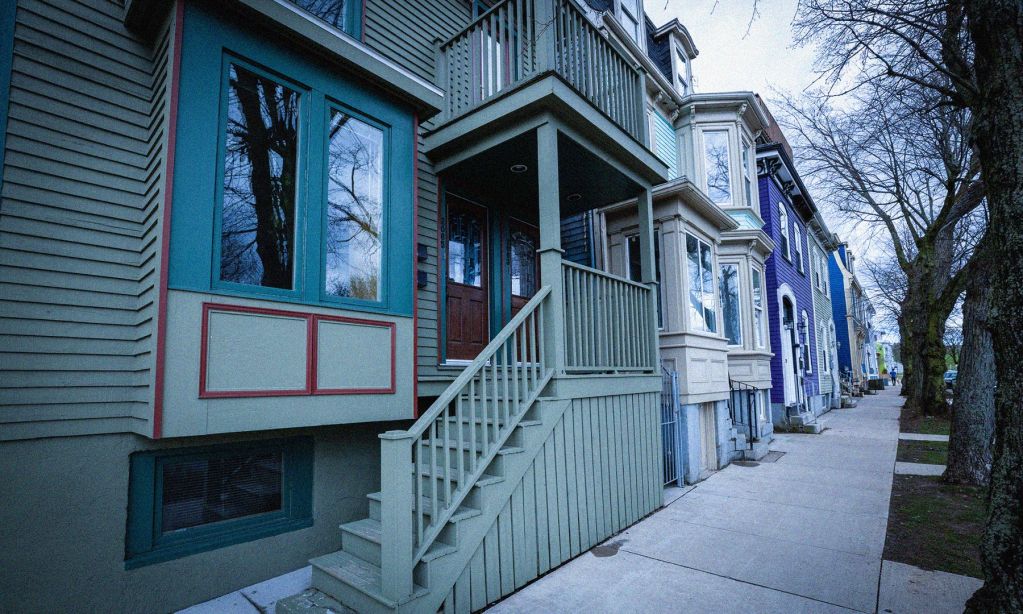It is a little-known fact that anyone can, at any point in time, freely access a public record of how many bingo licenses have been issued by Service Nova Scotia. Unfortunately, the same level of transparency is not available for records from the provinces’ Residential Tenancies Program—which also happens to be managed by Service Nova Scotia.
Access to housing is a human right, as a recent CCPA-Nova Scotia Housing for All report, Keys to a housing secure future for all Nova Scotians, underlines. Yet key statistics related to the current housing crisis—how many families in the province have been renovicted from their homes, or how many Residential Tenancies hearings are taking place—are not available, even though they could and should be.
The provincial government has echoed housing advocates’ desire for data and information on the current housing crisis, but it has failed to do its part. Instead, the province has relied on non-profit community organizations to provide services, statistics and solutions.
Dalhousie Legal Aid Service (DLAS), a community-based legal office and teaching clinic in Halifax, has recently begun collecting data on residential tenancies to meet the need for more information. Operational Funding for DLAS comes from the Schulich School of Law, a grant from the Law Foundation of Nova Scotia, and funding from Nova Scotia Legal Aid. The office also relies on donations and fundraising.
In the last ten months, senior law students working under the supervision of the two Community Legal Workers at DLAS have met with more than 200 households to provide legal information, while also collecting data on the housing crisis across Halifax Regional Municipality. By collecting and reporting publicly on their work, they are joining the efforts of the many community-based organizations across the province trying to paint a picture of the real impacts of the housing crisis:
The Affordable Housing Association of Nova Scotia, a non-profit organization, regularly publishes a By-Name List (BNL) of the number of people who are actively homeless. As of July 4, 2023, that number was 932, up from 625 this time last year.
The Homelessness in Halifax Regional Municipality Point-in-Time Count, released every two years, is spearheaded by the municipality’s Navigator Street Outreach Program, in partnership with community organizations that rely on charitable donations and funding to sustain their work;
Non-profit organizations providing housing services in municipalities on Cape Breton Island, Guysborough and Antigonish published a report in August 2022 on what the worsening housing crisis looks like in the area, showing that over 400 people in eastern Nova Scotia were experiencing some form of homelessness when its data was collected in November 2021.
Housing is a human right, and the responsibility for ensuring access to affordable, accessible housing falls squarely with the provincial government—not municipalities, charities, or non-profit organizations. The same goes for public reporting on housing and residential tenancies.
Dalhousie Legal Aid Service's data will provide valuable insights into the challenges tenants face in Halifax—including the types of leases they are signing, the number being evicted and reasons for eviction, and where evictions are taking place. It will also provide demographic data on the households facing these evictions.
However, it cannot reflect the full scope of the housing crisis across the province. Though Dalhousie Legal Aid Service supports households from across the municipality—from Herring Cove to Enfield—its data is limited to those who reach out to utilize its services, and the services its small team is able to provide with a limited non-profit budget.
The preliminary data gathered by Dalhousie Legal Aid Service since September 2022 has already offered insight into the housing crisis in Halifax. It confirms what Dalhousie Legal Aid Services’ senior law students and Community Legal Workers, along with other housing advocates, have seen and experienced through their front-line work with tenants—that Nova Scotia has a long way to go to making housing for all a reality.
Residential tenancies issues are becoming increasingly prevalent due to rising rents, low vacancy rates and increasing cost of living pressures. Though Dalhousie Legal Aid Service regularly works on Employment Support and Income Assistance (ESIA) and residential tenancies issues, the vast majority (at least 91 per cent) of all appointments in the past ten months were related to tenancies. More than 70 per cent of households who accessed DLAS’ drop-in services had a monthly income of less than $2,100, and almost half of the tenants seeking information were facing eviction.
As housing advocates have been saying, the housing crisis is getting worse, with low-income households being pushed out of their homes. More than 30 per cent of households seeking information about residential tenancies had fixed-term leases—which landlords are increasingly using to avoid the current rent cap, as housing advocates warned.
Generating meaningful, long-term insights into homelessness and housing insecurity through large-scale, ongoing data collection on residential tenancies issues is well within the government’s capacity. Nova Scotia must follow the lead of other jurisdictions, such as British Columbia and Saskatchewan, by publicizing residential tenancies decisions and publicly reporting data.
As the provincial department responsible for residential tenancies, Service Nova Scotia should be taking primary responsibility for undertaking this work, reporting on the number and type of residential tenancies applications, the number of hearings that take place, and the number of evictions ordered.
Collecting, analyzing, and reporting on this data is necessary if the government is serious about addressing Nova Scotia’s housing crisis. This is needed to fully understand issues faced by renters across the province, and it is a critical step to fulfilling the human right to housing for Nova Scotians. You can’t win at bingo if you don’t know the numbers on your card.











